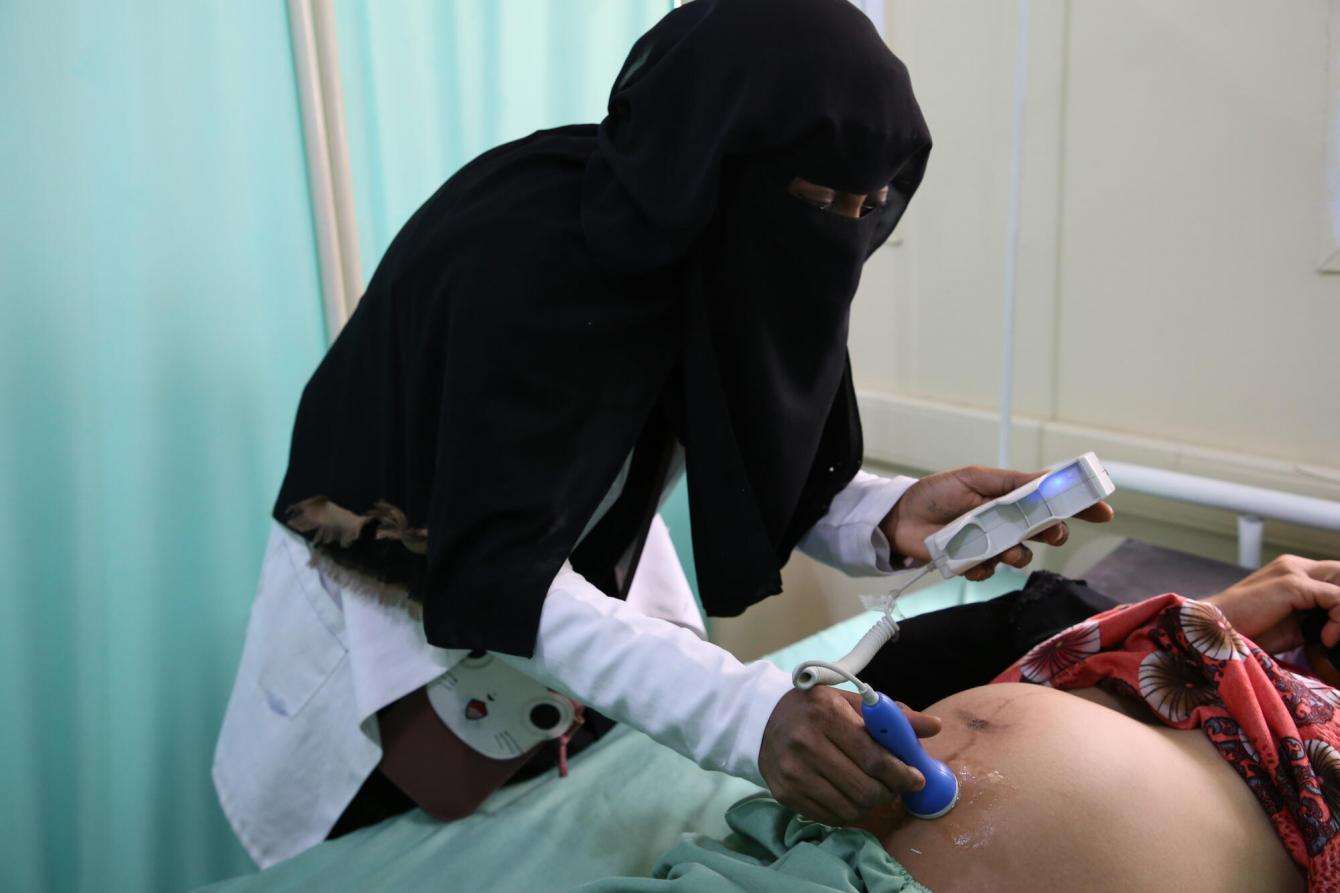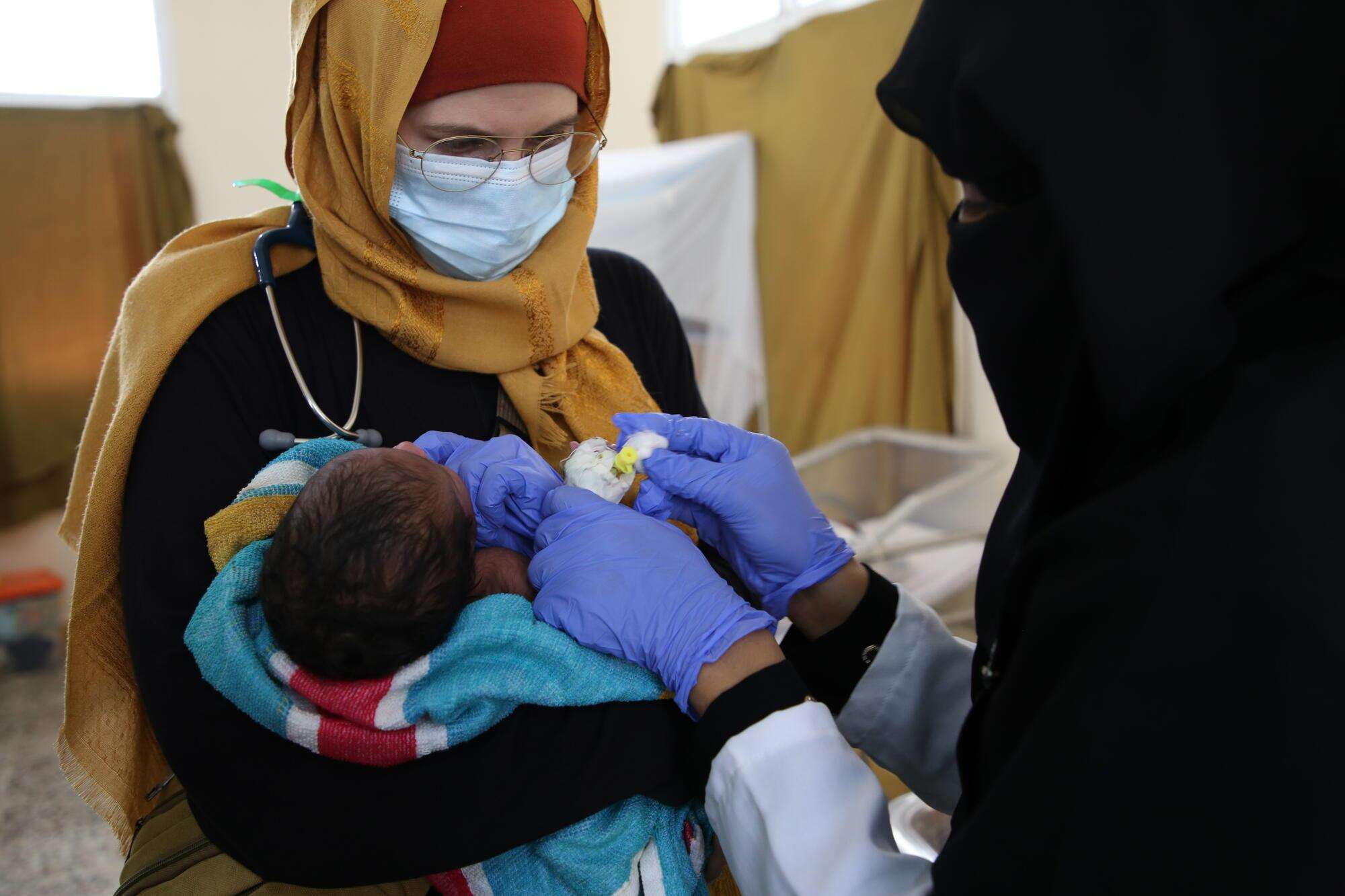Like most other women and girls in her village, 17-year-old Fatima* had no access to prenatal care during her pregnancy. She recently gave birth to her second child in the Doctors Without Borders/Médecins Sans Frontières (MSF) clinic in Al Qanawis, in northwestern Yemen’s Hodeidah governorate, becoming one of the nearly 200 people that MSF assisted during childbirth in March.
For six years Yemen has been gripped by conflict that has decimated the country’s economy and crippled its health system, leading to spiraling fuel and food costs and putting medical care out of reach for many. "Life has become very difficult because of the war," said Fatima. "I had heard about MSF—that the care is good and free of charge. We can’t afford the private hospitals."
It cost Fatima and her husband a week’s salary to pay for transport to the MSF clinic. She arrived with a fever, and when her baby was born the girl was admitted to the neonatology ward with an infection. She developed jaundice and was treated with light therapy.
The number of women seeking help at the Al Qanawis clinic has been rising steadily since it opened in late December 2020. There is a clear need for the services that MSF provides, but women are often unable to stay for the full period of monitoring and treatment.
Fatima, like so many others, wanted to leave the hospital early. While this went against the advice of the doctors, she explained that her 18-month-old son was waiting for her and was discharged with a course of antibiotics to continue treatment at home.

“The health system here has been left in ruins, with a lack of primary health care services that would support in the detection and prevention of medical problems at an early stage,” said Sebastian Loth, MSF’s field coordinator at the Al Qanawis project. “Some of the women who come to deliver at the clinic are malnourished, which can have a subsequent impact on the health of their baby. Many of the newborns have a low birth weight and require treatment in the neonatology ward. With little money to pay for transport to seek medical help, women have no choice but to wait until they are in urgent need of care to travel to the clinic. As a result, many arrive very late, with complications that can sometimes prove fatal for their babies.”
Basic health care at the local level would also support women and girls with family planning choices. With families struggling to feed their existing children, and without proper prenatal care available, the prospect of another pregnancy and delivery is a daunting one for many, and MSF doctors say that they have seen evidence of unsafe abortion attempts. Women also ask for tubal ligation at the clinic, a procedure that can only be performed for medical reasons.
Until people in Yemen can access free, safe health care close to where they live, they will continue to face additional and preventable dangers during pregnancy and childbirth.
*Name changed to protect anonymity.




